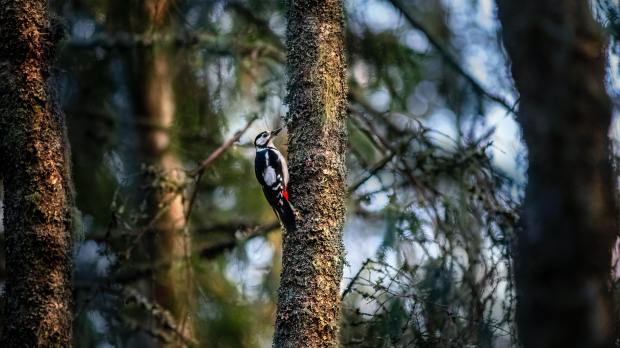Lenten Campaign 2025
This content is free of charge, as are all our articles.
Support us with a donation that is tax-deductible and enable us to continue to reach millions of readers.
One of the loveliest surprises my family and I experienced when we moved from the city to our current semi-rural location was the number of beautiful birds we encountered on a daily basis. I had always loved the glimpse of a rare cardinal in our tiny urban backyard, but now it’s like we live in a bird sanctuary. We all acknowledge that it has made life better.
It’s not just true for us, though. Research has confirmed that watching birds and hearing birdsong is known to have a positive impact on mental heath and well being.
A 2017 study published in BioScience by scientists at England’s University of Exeter showed that when people witnessed more birds in their daily lives, they experienced reduced prevalence and severity of depression, stress, and anxiety.
A YouGov poll commissioned by the RSPB, a British organization that began in 1889 to protect birds from extinction, found that 88% of UK adults said spending time outdoors enjoying the natural world was important to them, with 53% stating it was very important, while 91% agreed that seeing birds and hearing birdsong had a positive impact on mental health and wellbeing.
Last year, almost 700,000 people in Britain took part in a bird counting survey, counting more than 11 million birds for the RSPB. During the Big Garden Birdwatch Weekend, the house sparrow was the most commonly spotted garden visitor, followed by the blue tit and starling.
Noticing birds, listening to their sounds, watching them regularly, has many benefits — one big one being that it’s a great break from our screens, which most of us spend way too much time on.
But it’s about more than that. The beauty of birds, their movements and sounds, is a reminder of the way God’s creation, in its diversity, is not only a gift to be appreciated, but an important part of a rich and full life.
Since making a little more room for birds in your life may help you feel better and stay healthier, here are some easy ways to do that, wherever you live.
Visit the birds in your local park
Many parks have ducks, geese, and other birds. Make a point to pay attention to the birds and spend some time observing them. (Just don’t feed them bread – contrary to popular practice, it is not good for our winged friends.)
Hang a bird house
Whether in your yard, on your deck, or on your porch, different kinds of bird houses will attract different kinds of birds, and you’ll be surprised what birds are close by just waiting to visit your feeder!
Learn about the birds that are native to your region
This is a fun one especially if you have kids – you can find guides at the library, online, or at a local pet store and you can use a guide to identify birds that you see.
Invest in a pair of binoculars
Birds and their intricate patterns are easier to find when you’ve got a pair of binoculars! They also make a fun gift for children — they can use them for all kinds of nature discoveries.
Pick up the trash
Whenever you see trash and plastic lying around outside, pick it up and throw it in its proper receptacle — it’s bad for birds and all wildlife.
Take a walk outside anytime
Make a point to listen for bird songs as you walk, especially in the morning and evening. What do you hear? What are your favorites?



